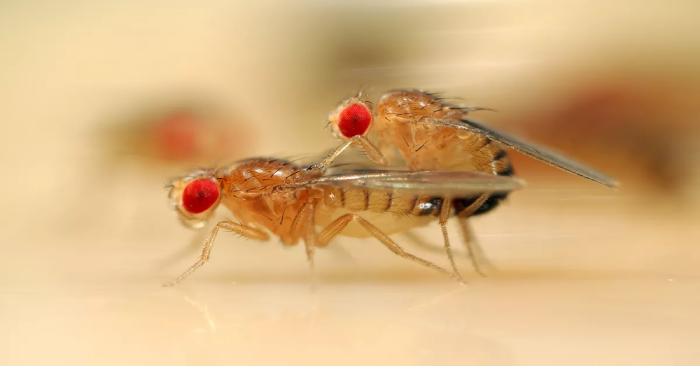Latest report in journal Neuron : Level of pleasure in female flies during sex

A new study published Monday in the journal Neuron has shown that the sensation of copulating – and not just insemination – is responsible for female fruit flies temporarily losing interest in other partners.
With this study report in the journal Neuron the scientists have uncovered an important point about the role of female pleasure in the reproduction process. Ulrike Heberlein, a senior fellow at the Howard Hughes Medical Institute in Virginia, and Lisha Shao at York University in Toronto, had set out to investigate the neurons involved in the reward circuitry of Drosophila melanogaster, or the common fruit fly.
A pair of sensory neurons in the abdomen that were “female-specific” and which “likely transmit excitatory signals from abdominal sensory systems to the brain.”
It was believed that proteins in a male fly’s ejaculate make females lose interest in other partners for up to a week – a trick used by males to ensure their own sperm is fertilized. So the researchers set up an experiment pairing the female fruit flies with males that could not ejaculate.
After mating, the females lost interest in other males, even though they had not received any sperm. By contrast, when the neurons perceived as rewarding were blocked, the females kept trying to mate.
Thus the cells appear to control the mechanism by which females determine they’ve had sex, independent of the so-called “sperm effect.”
“The question of whether a successful mating has happened is very important in evolution,” Heberlein told AFP. “Females need to be able to tell whether they copulated successfully or not, else it makes a lot of sense to try to mate again.
“Whereas if they successfully mated they have to spend resources in ovulating, laying eggs, dedicating themselves to reproduction.”






